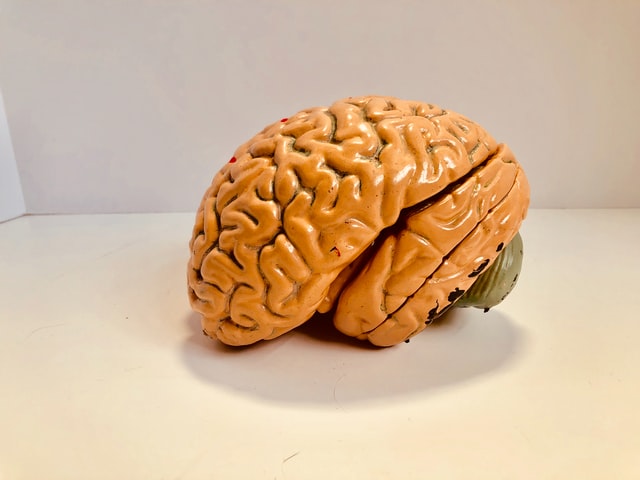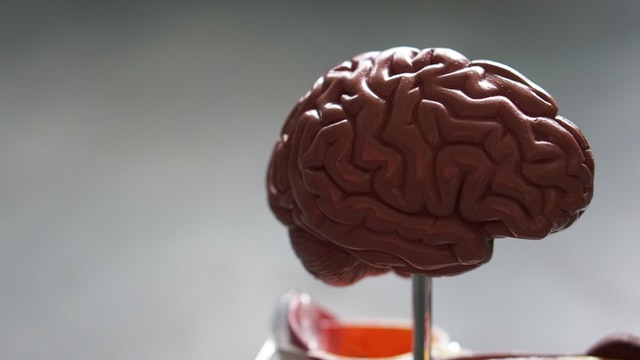We offer medical detox and multiple addiction treatment options in our
luxury treatment centres in Port Hope, Cobourg, and Ottawa.
Long-Term Effects of Street Drugs on the Brain
People often use drugs because the sensation of getting high can make them feel happy or invincible. The better they feel, the more they want to keep using drugs. This cycle contributes to how people become addicted. But drug addicts don't always realize the consequences of their drug use. Among many other adverse effects, street drugs can have long-term effects on the body, especially on the brain.
Learn about the long-term effects of crack on the brain and how street drugs can impact cognitive functioning.
Table of contents
1. Mental Health
2. Physical Brain Changes
3. Brain Aging

Image via Unsplash by natcon773
Mental Health
Various mood and emotional disturbances can result from using street drugs. Find out how crack cocaine, powdered cocaine, and crystal meth affect mental health.
Crack Cocaine
If used for an extended period, crack cocaine can cause abnormalities in the function of the brain, such as memory loss and a lowered attention span. It can also cause the brain to produce lower dopamine levels, which causes you to feel pleasure, contentment, and motivation.
Due to the decreased dopamine in their brains, crack cocaine users may experience sadness, depression, anxiety, irritability, restlessness, or a lack of desire to perform activities. These emotions may become so strong that they lose interest in work or leisure activities or have suicidal thoughts. Some users become violent. They may also become paranoid or experience hallucinations. According to research published in The Primary Care Companion to the Journal of Clinical Psychiatry, these effects can continue even after individuals stop using crack cocaine.
Powdered Cocaine
Powdered cocaine has a very similar effect on the brain as crack cocaine. It affects dopamine in the brain and can cause long-term mental health problems, such as major depression. Powdered cocaine use can also contribute to paranoia, psychosis, and anxiety or panic disorders.
Cocaine users may become aggressive or violent. According to the American Heart Association's journal Circulation, using the drug can also cause the brain to produce more stress hormones such as cortisol, resulting in permanent high blood pressure that may damage the cardiovascular system.
Crystal Meth
Crystal meth is another drug that affects a person's mental health. Like crack and powdered cocaine, crystal meth also interferes with dopamine in the brain, thus causing changes in mood such as depression and feelings of apathy and hopelessness. Chronic meth users often have trouble controlling their emotions and may experience mood swings or feelings of irritability, hostility, or aggression. In extreme instances, these individuals may harm themselves or become suicidal.
In addition, meth users often have shorter attention spans and difficulty concentrating or focusing, many times even after they've stopped using the drug. They frequently have problems with impulse control and show poor judgment and reduced problem-solving skills. Crystal meth can also cause memory loss and affect motor skills, including reaction time, coordination, and mobility.
Crystal meth is also known to cause more serious psychiatric disorders, including delusions, hallucinations, and losing touch with reality. A well-known condition among meth users is the feeling that they have itchy or bug-covered skin. Crystal meth users may cause damage to their skin as they try to cope with the skin sensations, according to a report in Family Practice News.
Physical Brain Changes
Drugs also cause physical and structural changes in the brain.
Crack Cocaine
Crack cocaine kills brain cells and alters neural pathways. Using crack cocaine can cause brain aneurysms, bleeding in the brain, strokes, and movement disorders. These neurological disorders can lead to uncontrolled movements, such as tremors, or affect a person's ability to move or walk properly. According to the National Institute on Drug Abuse, using crack cocaine can result in seizures, even among those using it for the first time, and contribute to irreversible brain damage.
Powdered Cocaine
Like crack cocaine, powdered cocaine also causes brain damage, even after one-time use. Cocaine addicts often have evidence of low glucose metabolism in the brain, which is likely an effect of brain neurons that aren't working correctly or are dying. Cocaine may also damage the linings of the veins and arteries in the brain, which stops blood from properly flowing to the area. As a result, individuals can experience chronic headaches or blood clots in the brain that may result in a stroke.
Cocaine users also often experience seizures, usually during excessive or chronic drug use. In severe cases, individuals could experience a seizure disorder. For more info, read more about the cocaine effects here.
Crystal Meth
Crystal meth causes brain neurons to die, resulting in brain damage. Meth affects many brain areas, which can negatively affect meth users. Crystal meth can contribute to difficulties in everything from memory to movement. The drug damages areas of the brain that control different functions in the body.
Using meth can also affect blood flow to the brain and result in brain scarring, blood clots, and severe strokes. Many meth addicts are also at higher risk for serious brain injuries. According to the National Institute on Drug Abuse, the effects of meth on the brain are often permanent.
Brain Aging
The brain slows down and becomes less efficient as we age. Older adults can exhibit memory loss, decreased cognitive abilities, and dementia. During the aging process, these conditions result from a loss of gray matter, which is the brain's outer layer. However, studies show that drug use likely causes the same brain changes and cell loss that occur when we age. Essentially, drugs can make the brain get old faster.
One study showed that cocaine addicts lost gray matter at twice the rate of the normal aging process, meaning that their brains aged twice as fast. A second study showed that using cocaine may result in brain cells cannibalizing themselves. As the brain cells disintegrate, a stress reaction causes other cells to become destroyed as well. The brain-cannibalizing effect may occur in the unborn babies of pregnant cocaine users, according to a Johns Hopkins University study.
The Canadian Centre for Addictions Is Here to Help
The Canadian Centre for Addictions (CCFA) offers a full range of quality services that give our clients flexible therapy and counseling for drug and alcohol addiction. Contact us now to learn more about our addiction treatment program.





